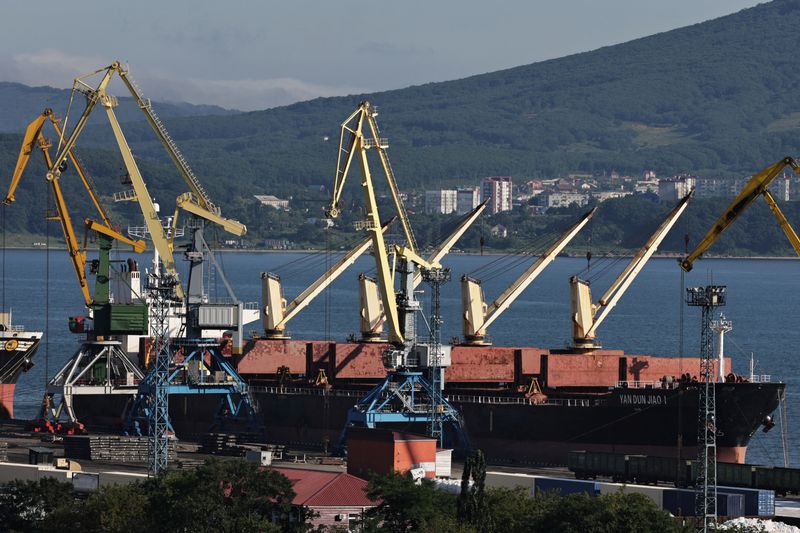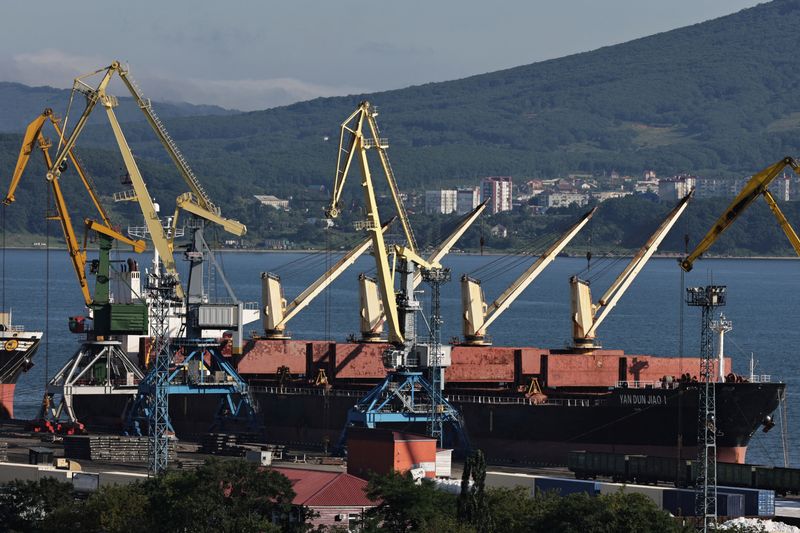
By Georgina McCartney and Robert Harvey
LONDON (Reuters) -Oil prices fell for a third consecutive session on Tuesday, as growing expectations of a ceasefire in Gaza and demand concerns offset potential September interest-rate cuts and supply threats from Canadian wildfires.
Brent crude futures for September fell by 84 cents, or 1%, to $81.56 a barrel by 1409 GMT (10:09 a.m. ET). U.S. West Texas Intermediate crude for September dropped 93 cents, or 1.2%, to $77.47 per barrel.
Both contracts were down by more than $1 at their intra-day nadirs on Tuesday.
In the Middle East, efforts to reach a ceasefire deal between Israel and militant group Hamas, under a plan outlined by U.S. President Joe Biden in May and mediated by Egypt and Qatar, have gained momentum over the past month.
Israeli Prime Minister Benjamin Netanyahu told families of hostages held in Gaza that a deal that would secure their release could be near, his office said on Tuesday, as fighting raged in the battered Palestinian enclave.
U.S. President Joe Biden is expected to meet Netanyahu on Thursday at the White House.
The war in Gaza has lent support to oil prices as investors priced in the risk of potential disruptions to global crude supply in the key producing region of the Middle East.
Also weighing on prices, the U.S. dollar strengthened, making greenback-denominated oil more expensive for holders of other currencies.[USD/]
“Any further weakening of demand signals, combined with a resolution in Gaza, could lead to a further decrease in oil prices,” Priyanka Sachdeva, senior market analyst at Phillip Nova said.
“Given the current dominance of demand concerns, oil prices may initially find it difficult to make up lost ground,” Commerzbank (ETR:CBKG) analyst Carsten Fritsch said.
Growing bets on interest rate cuts in September, however, could provide a floor to oil prices, as lower borrowing costs tend to support oil demand.

European Central Bank Vice-President Luis de Guindos hinted at a possible interest rate cut in September, while in the U.S., investors are also betting on September rate cuts by the Federal Reserve.
Elsewhere, growing wildfires in Canada’s Alberta province are putting up to 400,000 barrels per day of oil output at risk, although production has so far remained largely stable, Goldman Sachs said.
This post is originally published on INVESTING.



